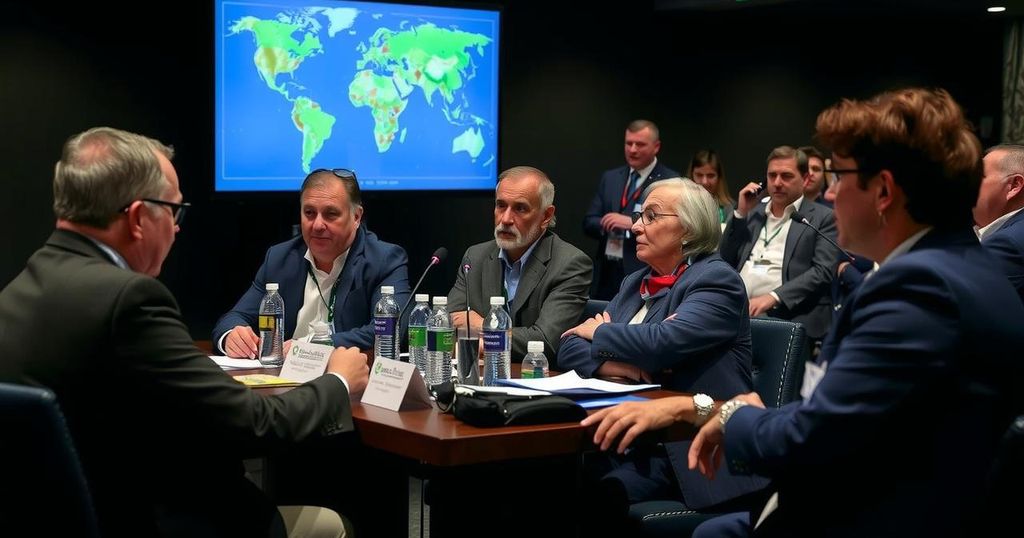Divided Leaders Offer Competing Visions at COP29 Amid Emission Crisis

At COP29 in Baku, global leaders presented conflicting strategies for addressing climate change, as emissions from fossil fuels hit record highs. A new report highlighted the need for net-zero carbon emissions by the late 2030s, urging immediate action. Debates over fossil fuel reliance and climate finance marked the discussions, revealing significant divides and urgent calls for international cooperation.
Global leaders presented divergent strategies to address climate change during the UN-led discussions in Baku. A recent report from the Global Carbon Project revealed alarming levels of carbon emissions from fossil fuels, which have reached new record highs this year. The report signals that achieving the Paris Agreement goal of maintaining a global temperature increase of 1.5 degrees Celsius now necessitates reaching net-zero carbon emissions by the late 2030s. Yalchin Rafiyev, Azerbaijan’s negotiator for COP29, emphasized the urgency of action to uphold this critical objective. Despite the call for decisive measures, the gathering highlighted a split among nations. Some leaders advocated for fossil fuel reliance, while others, particularly from nations increasingly affected by climate change, insisted on immediate action to phase out such energy sources. Prime Minister Edi Rama of Albania criticized the empty rhetoric surrounding climate action, pointing out the detrimental absences of many leaders from the event. Conversely, figures like Italian Prime Minister Giorgia Meloni and Greek Prime Minister Kyriakos Mitsotakis expressed a more cautious approach, advocating for preserving current industrial and social systems, cautioning against prioritizing decarbonization too quickly. In stark contrast, the Prime Minister of Tuvalu urged that Pacific nations face an existential threat from climate change, and stressed the indispensability of phasing out fossil fuel use. Negotiators also presented a proposal addressing climate finance, as wealthy nations are facing pressure to commit to substantial funding increases for developing countries. Most developing nations are requesting at least $1.3 trillion annually, significantly more than the current financial assistance they receive. The situation has sparked debates over whether financing should be composed of grants rather than loans, reflecting a pressing need for immediate and actionable support.
The COP29 climate talks are a critical platform for global leaders to negotiate strategies to combat climate change and promote sustainability. This year’s discussions are particularly urgent due to rising levels of carbon emissions, which have reached unprecedented highs. The Global Carbon Project’s findings provide an alarming backdrop, presenting a stark warning that previous timelines for achieving carbon neutrality must now be accelerated. The contrasting perspectives of attending leaders underscore the complexity of international climate negotiations, as varying national interests collide and influence commitments to meaningful action.
In summary, the discussions at COP29 reveal a profound division among global leaders concerning the paths to combat climate change. While some advocate for sustained reliance on fossil fuels, others are calling for urgent measures to curb emissions to meet the aggressive targets outlined in the Paris Agreement. The impasse over climate finance also highlights significant disparities between developed and developing nations, emphasizing the urgency for cooperative action and innovative solutions to finance a sustainable future.
Original Source: www.rfi.fr








